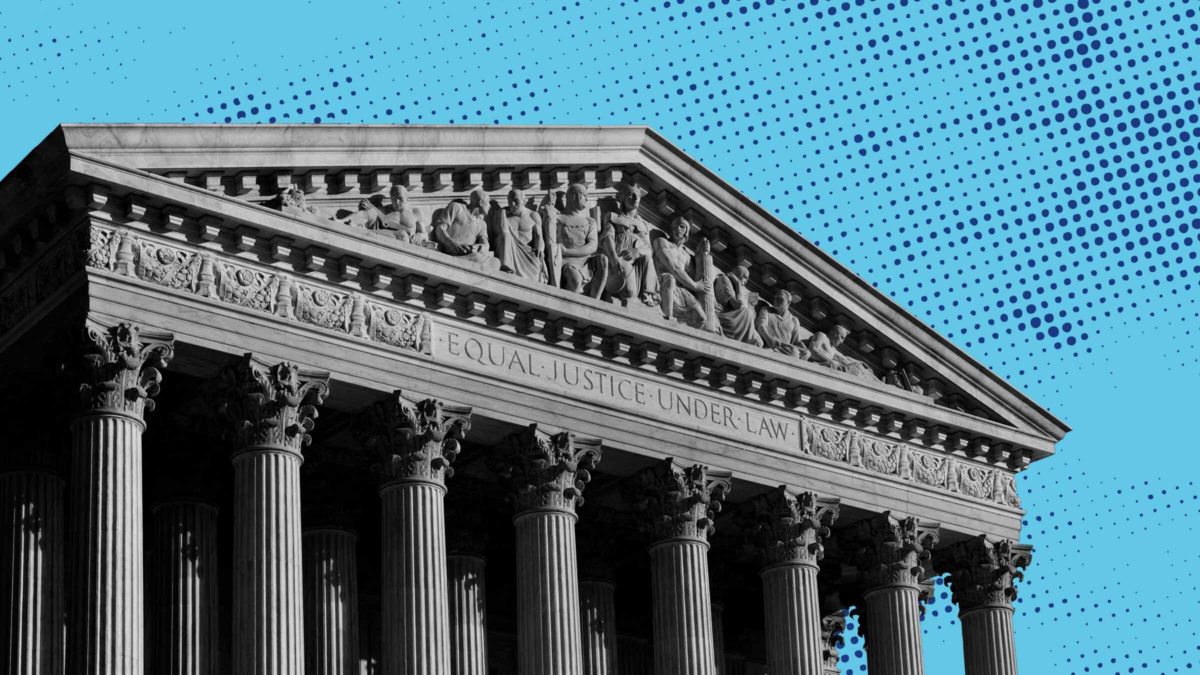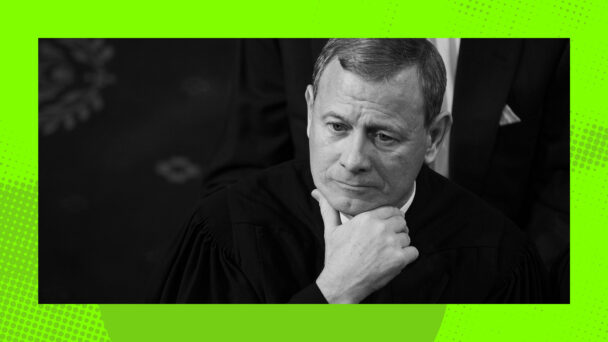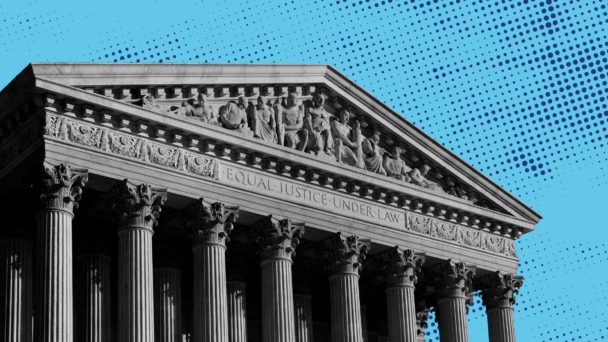Editor’s Note: This week, we are working with our friends at Slate to talk about originalism: what it is, why it’s terrible and stupid, and what can be done about it before Republican judges use it to bury democracy under a mountain of half-baked Wikipedia citations. First up, Madiba Dennie on “inclusive constitutionalism,” which is the subject of her forthcoming book, The Originalism Trap.
Originalism—the once obscure legal theory now embraced by the right-wing reactionaries on the Supreme Court—should never have taken over in the first place. The originalist ideology maintains that the meaning of the Constitution is fixed at the time of its enactment, and its provisions must be understood now as the public purportedly understood them back then. Yet the Supreme Court expressly rejected that very idea in May 1954 when it decided Brown v. Board of Education and recognized racially segregated schools as unconstitutional: “We cannot turn the clock back to 1868,” the court wrote with reference to the adoption of the 14thAmendment, “or even to 1896 when Plessy v. Ferguson was written.”
Crucially, the court’s finest moment was premised on the idea that binding legal interpretation to history is not the only way—or even a good way—to make decisions about the Constitution and the country. Brown provides a welcome reminder that originalism is the tool of segregationists, and that the theory should be treated with the same level of disdain with which comic-book Batman treats guns: “This is the weapon of the enemy. We do not need it. We will not use it.”
The idea that modern constitutional interpretation can’t deviate from its alleged original public meaning continues to serve the same function today as it did in 1954 when it was invoked by the litigants defending segregation. The reason why the Republican justices on the Supreme Court and their enablers claim that legitimate constitutional interpretation must follow some version of American history and tradition is so that they can drag the country back to the oppressive eras for which they’re nostalgic.
If not originalism, then what? The public must recover its ability to determine what laws mean outside of originalism’s strategic confines. If we the people are to build a modern equitable democracy, we must fight for an interpretive method grounded in a modern understanding of equality and democracy. I call that method inclusive constitutionalism. And I introduce it as a framework for constitutional interpretation in my forthcoming book, The Originalism Trap: How Extremists Stole the Constitution and How We the People Can Take it Back. At its core, inclusive constitutionalism refers to the idea that the Constitution must be interpreted in furtherance of an inclusive democracy, meaning a society that extends full membership to all its residents and enables them to participate equally in the nation’s social, political, and economic life.
Read the rest at Slate.




